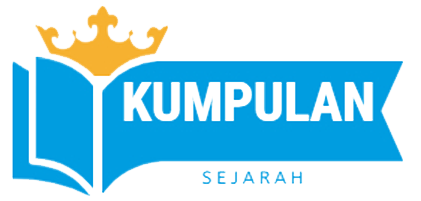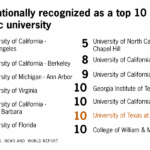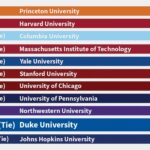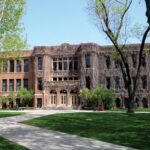State University of New York System News sets the stage for this enthralling narrative, offering readers a glimpse into a story that is rich in detail and brimming with originality from the outset. The SUNY system, a sprawling network of institutions across New York State, is a vital force in education, research, and community development. This news roundup explores the latest happenings within the SUNY system, shedding light on its achievements, challenges, and aspirations for the future.
From groundbreaking research initiatives to the diverse experiences of its student body, the SUNY system is a dynamic and ever-evolving entity. This news update provides a comprehensive overview of the SUNY system’s current state, highlighting key developments, ongoing projects, and the impactful contributions of its members.
Economic Impact and Community Engagement
The State University of New York (SUNY) system is a vital economic engine for New York State, generating significant economic activity and contributing to the overall prosperity of its communities. SUNY institutions are deeply intertwined with their local communities, fostering partnerships, supporting outreach programs, and providing volunteer opportunities that benefit residents of all ages and backgrounds.
Economic Impact
SUNY institutions contribute to the New York State economy in various ways, including job creation, economic development, and research and innovation. SUNY’s economic impact is substantial, generating billions of dollars in economic activity annually.
- Job Creation: SUNY is a major employer in New York State, providing employment opportunities for faculty, staff, and students. The system supports over 170,000 jobs directly and indirectly, contributing significantly to the state’s workforce.
- Economic Development: SUNY institutions serve as catalysts for economic development in their surrounding communities. They attract businesses and industries, stimulate innovation, and foster entrepreneurship. SUNY’s research and development activities lead to new technologies and products, driving economic growth in various sectors.
- Research and Innovation: SUNY institutions are at the forefront of research and innovation, conducting cutting-edge research that advances knowledge and benefits society. Their research activities generate new discoveries, attract funding, and create spin-off companies, contributing to economic growth and job creation.
Community Engagement
SUNY institutions are deeply committed to serving their communities and enhancing the quality of life for their residents. They engage in a wide range of community outreach programs, partnerships, and volunteer opportunities that address local needs and foster a sense of belonging.
- Outreach Programs: SUNY institutions offer a variety of outreach programs that provide educational, cultural, and recreational opportunities to community members. These programs often target underserved populations, such as children, seniors, and individuals with disabilities, promoting access to resources and opportunities.
- Partnerships: SUNY institutions partner with local businesses, non-profit organizations, and government agencies to address community challenges and promote economic development. These partnerships leverage the expertise and resources of SUNY institutions to support local initiatives and create positive change.
- Volunteer Opportunities: SUNY institutions encourage their students, faculty, and staff to engage in volunteer activities that benefit their communities. These opportunities provide students with valuable experiences, connect them with local organizations, and foster a sense of civic responsibility.
Challenges and Opportunities
The SUNY system, like many other public higher education institutions, faces a number of challenges that require innovative solutions to maintain its standing and continue its mission of providing accessible and affordable education. These challenges are not insurmountable, however, and present opportunities for the SUNY system to enhance its position in higher education and better serve its students and communities.
Funding Constraints
Funding for public higher education has been steadily declining in recent years, placing a strain on SUNY institutions. This trend is driven by various factors, including state budget cuts, declining federal funding, and increased competition for limited resources. The consequences of funding constraints can be significant, potentially leading to:
- Reduced program offerings and course availability
- Increased tuition costs and student debt
- Limited faculty hiring and salary increases
- Deferred maintenance and infrastructure upgrades
To address funding constraints, the SUNY system can explore various strategies, such as:
- Advocating for increased state and federal funding for higher education
- Exploring alternative revenue streams, such as partnerships with private companies or foundations
- Implementing cost-saving measures, such as consolidating administrative functions or exploring online learning options
- Seeking innovative funding models, such as performance-based funding, which rewards institutions based on student outcomes
Declining Enrollment
The SUNY system has experienced declining enrollment in recent years, mirroring a national trend in higher education. This decline can be attributed to factors such as demographic shifts, economic uncertainty, and the increasing cost of college. Declining enrollment can have a significant impact on SUNY institutions, potentially leading to:
- Reduced tuition revenue
- Program closures and faculty layoffs
- Decreased campus vibrancy and student engagement
To address declining enrollment, the SUNY system can consider:
- Expanding access to affordable and high-quality education through initiatives like online learning, dual enrollment programs, and adult learner programs
- Focusing on student recruitment and retention strategies, such as targeted marketing campaigns, student support services, and career development programs
- Investing in innovative teaching and learning approaches that cater to diverse student needs and learning styles
- Promoting the value of a SUNY education by highlighting its affordability, accessibility, and quality
Competition from Other Institutions, State university of new york system news
The SUNY system faces increasing competition from other higher education institutions, both public and private. This competition is driven by factors such as the growth of online learning, the rise of for-profit colleges, and the increasing demand for specialized skills and knowledge. To remain competitive, the SUNY system needs to:
- Differentiate itself by offering unique programs and services, such as specialized degree programs, research opportunities, and career placement services
- Invest in faculty development and research, attracting and retaining top talent
- Enhance its online learning offerings, ensuring quality and accessibility
- Partner with industry leaders to provide students with relevant skills and experience
Future Directions
The SUNY system is poised for continued growth and innovation, driven by its commitment to providing accessible and affordable higher education. The system is actively pursuing strategies to adapt to the evolving needs of students and the workforce, ensuring its continued relevance and impact in the 21st century.
Strategic Growth and Expansion
The SUNY system is actively exploring opportunities for strategic growth and expansion, both within existing campuses and through the development of new programs and initiatives.
- Expansion of Online and Hybrid Learning: The SUNY system is expanding its online and hybrid learning offerings to meet the needs of a diverse student population, including working adults, individuals seeking flexibility, and those living in remote areas. The system is investing in advanced technologies and pedagogical approaches to ensure the quality and effectiveness of online learning.
- Development of New Academic Programs: SUNY is actively developing new academic programs in high-demand fields such as STEM, healthcare, and cybersecurity, aligning its curriculum with the evolving needs of the workforce. This includes the creation of interdisciplinary programs that combine traditional academic disciplines with emerging technologies and skills.
- Partnerships with Industry and Government: The SUNY system is strengthening its partnerships with industry and government to create innovative programs, research collaborations, and workforce development initiatives. These partnerships provide students with real-world experience, enhance the competitiveness of the SUNY system, and drive economic growth in the state.
Innovations in Education and Technology
The SUNY system is embracing innovation in education and technology to enhance the learning experience and prepare students for success in a rapidly changing world.
- Personalized Learning and Adaptive Technologies: SUNY is implementing personalized learning approaches and utilizing adaptive technologies to tailor education to individual student needs and learning styles. These technologies provide students with personalized feedback, support, and learning paths, enhancing engagement and academic outcomes.
- Virtual Reality and Augmented Reality: The SUNY system is exploring the use of virtual reality (VR) and augmented reality (AR) to enhance learning experiences, particularly in fields such as healthcare, engineering, and the arts. VR and AR technologies can create immersive simulations that provide students with hands-on experience and deeper understanding of complex concepts.
- Big Data Analytics and Artificial Intelligence: The SUNY system is leveraging big data analytics and artificial intelligence (AI) to improve student success, enhance institutional efficiency, and support decision-making. AI-powered tools can analyze student data to identify at-risk students, predict academic outcomes, and personalize support services.
SUNY System Leadership: State University Of New York System News
The SUNY system is governed by a board of trustees and led by a chancellor. The chancellor is the chief executive officer of the SUNY system and is responsible for overseeing the system’s operations and implementing its strategic plan. The board of trustees is responsible for setting policy and providing oversight for the SUNY system.
Current Leadership
The current chancellor of the SUNY system is John B. King Jr., who was appointed in 2021. The board of trustees is comprised of 17 members, appointed by the governor and confirmed by the state senate. The board is responsible for setting policy for the SUNY system, including approving the system’s budget, appointing the chancellor, and overseeing the system’s operations.
Vision and Priorities
The SUNY system’s leadership has Artikeld a vision for the system that emphasizes affordability, accessibility, and quality. The leadership’s priorities include:
- Increasing access to higher education for all New Yorkers, regardless of their background or financial circumstances.
- Improving affordability by reducing tuition costs and increasing financial aid.
- Enhancing the quality of education by investing in faculty and research.
- Promoting innovation and entrepreneurship within the SUNY system.
- Strengthening the SUNY system’s role in economic development.
Leadership’s Role in Strategic Direction
The SUNY system’s leadership plays a crucial role in guiding the system’s strategic direction. The leadership is responsible for developing and implementing the system’s strategic plan, which Artikels the system’s goals and objectives. The leadership also works to ensure that the system’s resources are allocated effectively to achieve these goals.
Addressing Key Challenges
The SUNY system faces a number of challenges, including:
- Declining state funding.
- Increasing competition from other institutions of higher education.
- The need to adapt to the changing needs of the workforce.
The leadership is working to address these challenges by:
- Seeking additional funding from the state and federal governments.
- Developing new partnerships with businesses and other organizations.
- Investing in new technologies and programs to prepare students for the jobs of the future.
Alumni Success Stories
The SUNY system boasts a vast network of accomplished alumni who have made remarkable contributions to their fields and society. These individuals serve as inspiring examples of the transformative power of a SUNY education. This section will explore the achievements of some notable SUNY alumni and highlight the impact of their SUNY experience on their success.
Notable SUNY Alumni and Their Achievements
SUNY alumni have achieved remarkable success in diverse fields, including science, technology, arts, business, and public service. Their accomplishments serve as a testament to the quality of education and the opportunities provided by the SUNY system. Here are some examples:
- Dr. Ruth Westheimer, a renowned sex therapist and author, earned her doctorate in education from the City University of New York (CUNY), a member of the SUNY system. Her groundbreaking work has helped to break down taboos surrounding sexuality and empower individuals to embrace their sexual health.
- Robert F. Kennedy Jr., an environmental activist and lawyer, graduated from the University at Buffalo, a SUNY institution. He is known for his advocacy for environmental protection and his work to raise awareness about the dangers of pollution and climate change.
- Andrew Cuomo, the former Governor of New York, holds a law degree from Fordham University School of Law, also part of the SUNY system. His political career has been marked by his focus on economic development, social justice, and healthcare reform.
The Impact of a SUNY Education on Alumni
A SUNY education provides students with the knowledge, skills, and experiences necessary to succeed in their chosen fields. This impact is evident in the accomplishments of SUNY alumni, who often credit their SUNY experience for shaping their careers and personal lives.
- Career Development: SUNY alumni often find that their education has equipped them with the necessary skills and knowledge to excel in their chosen professions. The rigorous academic programs, research opportunities, and internships offered by SUNY institutions provide students with a strong foundation for their future careers.
- Personal Growth: SUNY’s diverse student body and vibrant campus communities foster personal growth and development. Students have the opportunity to explore new ideas, connect with people from different backgrounds, and develop leadership skills.
- Networking Opportunities: SUNY alumni benefit from a vast network of connections that can open doors to career opportunities and professional development. The SUNY system provides opportunities for alumni to stay connected through events, mentorship programs, and online platforms.
SUNY Alumni Making a Difference in the World
SUNY alumni are making a difference in the world by applying their knowledge and skills to address global challenges and improve the lives of others. Their contributions span a wide range of fields, from healthcare and education to environmental protection and social justice.
- Healthcare Innovation: SUNY alumni are leading the way in healthcare innovation, developing new treatments, technologies, and approaches to improve patient care. For example, Dr. Anthony Fauci, the Director of the National Institute of Allergy and Infectious Diseases, earned his medical degree from Cornell University Medical College, a SUNY institution. His expertise has been instrumental in the global response to the COVID-19 pandemic.
- Educational Advancement: SUNY alumni are dedicated to improving access to quality education for all. They work as teachers, administrators, and policymakers to ensure that every student has the opportunity to reach their full potential. For instance, Dr. Michelle Rhee, a prominent education reformer, earned her Master’s degree from the State University of New York at Albany. She has been a vocal advocate for school reform and has played a significant role in shaping educational policy in the United States.
- Social Justice Advocacy: SUNY alumni are actively engaged in social justice movements, working to address issues such as racial equality, LGBTQ+ rights, and environmental protection. Their commitment to social justice is rooted in their SUNY experience, which emphasized critical thinking, empathy, and a commitment to making a difference in the world.
The State University of New York System continues to be a beacon of educational excellence and innovation, playing a crucial role in shaping the future of New York State. As we delve deeper into the intricacies of the SUNY system, we gain a deeper understanding of its impact on students, communities, and the broader landscape of higher education. This news update serves as a testament to the SUNY system’s commitment to academic excellence, student success, and its vital role in fostering a brighter future for all.
The State University of New York system has been making headlines recently, particularly with its focus on expanding access to higher education. While the SUNY system has been making strides in its own right, it’s worth noting the similar efforts being made by other large university systems, like the University of Maryland system, which has been working to increase affordability and accessibility through its university of maryland news initiatives.
These efforts highlight a growing trend across the country to ensure that higher education remains a viable option for students of all backgrounds.
The State University of New York system is a large and diverse network of colleges and universities, offering a wide range of academic programs. While the SUNY system focuses on New York, it’s interesting to compare its news and updates with those of the state university system of Florida news , as both systems face similar challenges and opportunities in higher education.
The SUNY system continues to invest in innovative programs and research initiatives, striving to provide students with a top-notch education and prepare them for the future.





